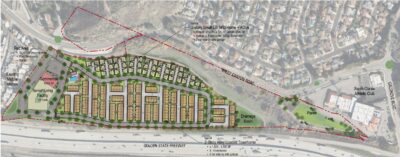By The Signal Editorial Board
They say the Legislature in Sacramento is ruled by a Democratic “supermajority.” These days, it feels more like an uber-majority, as the legislative actions of the overruling party in Sacramento have nearly destroyed an entire industry.
Running roughshod over California’s independent gig workers and the Sacramento micro-minority Republicans, the Legislature last year passed Assembly Bill 5, the epitome of legislative nanny-ing designed to cozy up to labor unions, increase the tax base and punish those who enjoy the freedom of the so-called “gig economy.”
Regardless of one’s party affiliation, AB 5 is a case study in why it’s a bad idea to have both houses of the Legislature and the governor’s office all controlled by one-party rule. There’s no need for them to negotiate, compromise or seek more creative solutions, because they know they can just bulldoze their way through anything.
Citing a California Supreme Court decision in the Dyamex case, AB 5 was crafted to force the reclassification of certain categories of workers as employees instead of independent contractors.
AB 5 impacts hundreds of industries, including, according to the Sacramento Business Journal, “court reporters, musicians, event planners, community theater groups and real estate appraisers, to golf caddies, youth orchestras, translators, transcribers, opera singers, sign-language interpreters, indie filmmakers, sheep shearers, foresters, YouTube creators — and more. Even magicians — who are subject to the law — are unable to wave a magic wand and make it disappear.”
But the bill’s prime targets? Uber and Lyft, the popular ridesharing services, and others like them. True to form, though, the Legislature carved out exceptions in AB 5 for a raft of apparently favored industries that would be exempt from its provisions. As Republican state Sen. Scott Wilk has correctly pointed out, the Legislature was “picking winners and losers” in AB 5.
It’s the quintessential heavy-handedness of a ruling party that never has to compromise. In an article for the Foundation for Economic Education, Brad Polumbo wrote: “There was nothing humble or cautious about the approach California took to regulating the ride-sharing industry. Legislators took a cursory look at a business model they clearly didn’t understand, wished it was different, and thought they could rewrite it entirely on their own. This hubris has not improved conditions for workers, but brought the industry to the brink of destruction.”
Indeed.
The new law went into effect in January, but full implementation has been delayed by legal challenges from Uber and Lyft. It requires the rideshare services — and other industries — to reclassify many independent contractors as employees, and to provide health care and other benefits, as well as pay additional taxes.
Ah, taxes. That’s always what’s really at the heart of these things, isn’t it?
The court battle came to a head over the past week, after a judge ordered Uber and Lyft to comply by Aug. 20. Compliance is at best a difficult transition, and at worst completely unaffordable, so Uber and Lyft each made plans to suspend service in California effective midnight Thursday.
It would have put hundreds of thousands of gig drivers out of work. In the middle of a pandemic and unprecedented unemployment levels.
Thankfully, Uber and Lyft got an 11th-hour reprieve from the courts as they pursue their appeal. The new ruling allows the companies extra time to develop a compliance plan by next month.
Meanwhile, a ballot initiative in November, Proposition 22, offers voters a chance to save rideshare services in California. Backed by Uber, Lyft and Doordash, Prop. 22 would allow the drivers to continue to be classified as independent contractors but, recognizing that some protections are indeed warranted for the drivers — especially those who have turned their driving into a full-time endeavor — the proposition would also require that they receive multiple benefits, including minimum compensation, vehicle insurance, safety training and sexual harassment policies.
That’s the kind of thoughtful compromise that should have been included in AB 5 in the first place: Provide protections for workers without depriving them of their flexibility, independence and the other aspects of the gig economy that make it appealing.
The reality of the gig industry is that, while many drivers have chosen to pursue it as a full-time occupation, many others view it as a part-time side hustle that offers unparalleled flexibility — the ability to earn money on your own schedule, working when you want, and not working when you don’t. As full-fledged employees, such flexibilities would be tossed out the window.
Added to this is the fact that rideshare services like Uber and Lyft have become an integral part of the modern culture, providing an affordable transportation option to many who do not have cars of their own or have limited access to public transportation.
And, as Mothers Against Drunk Drivers pointed out this week, rideshare services like Uber and Lyft have provided many thousands of passengers a safe way home rather than getting behind the wheel when they shouldn’t.
Hopefully, the companies will be able to sort out a plan that pleases the courts — and barring that, hopefully voters will recognize that Prop. 22 is a reasonable solution to an unreasonable piece of legislation.
After all, as the uber-majority in Sacramento has shown, it’s their way or the highway.
Or in this case, it’s their way or no highway.











